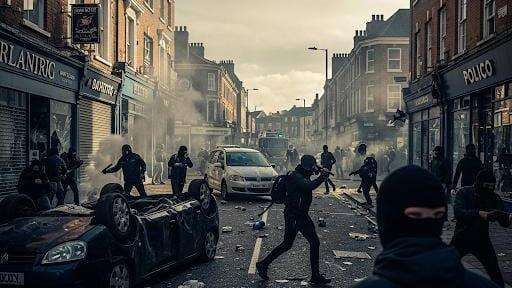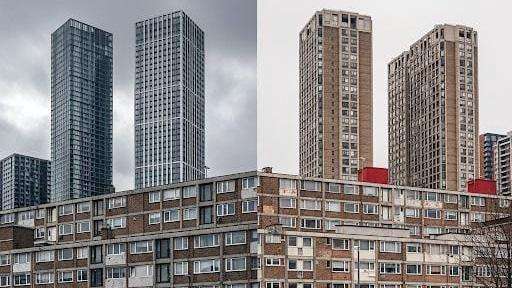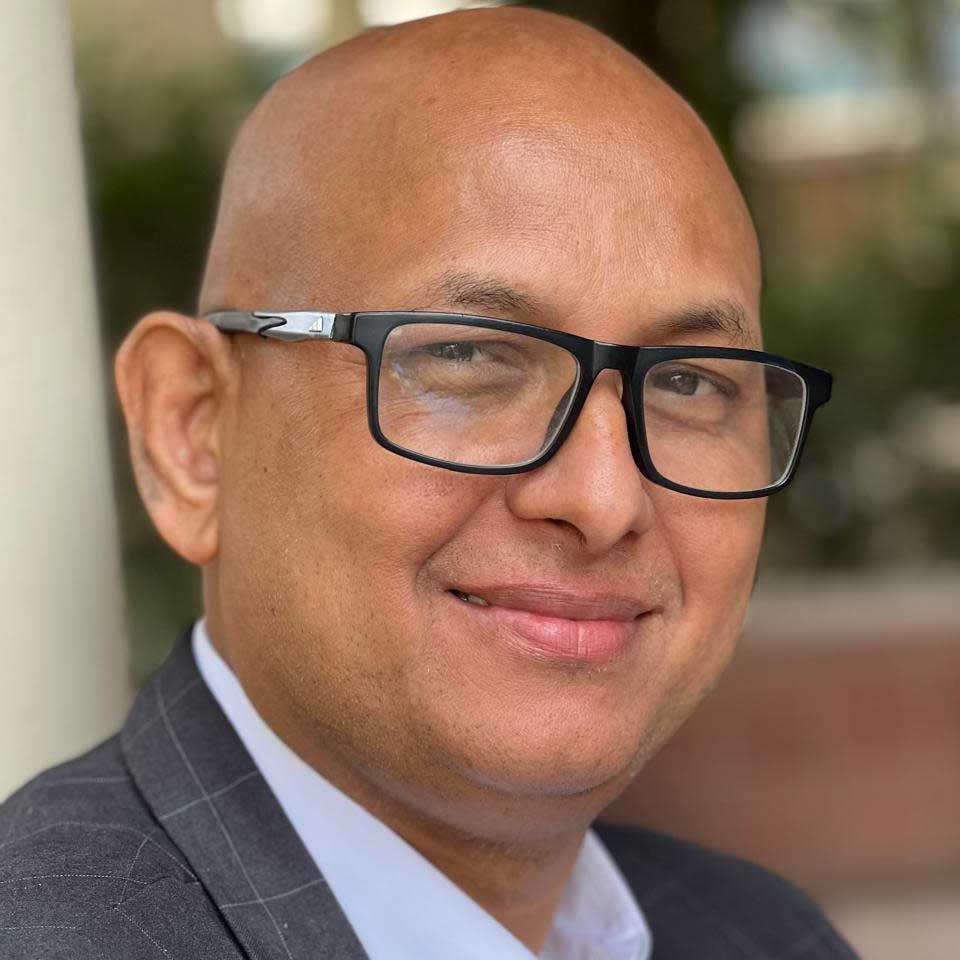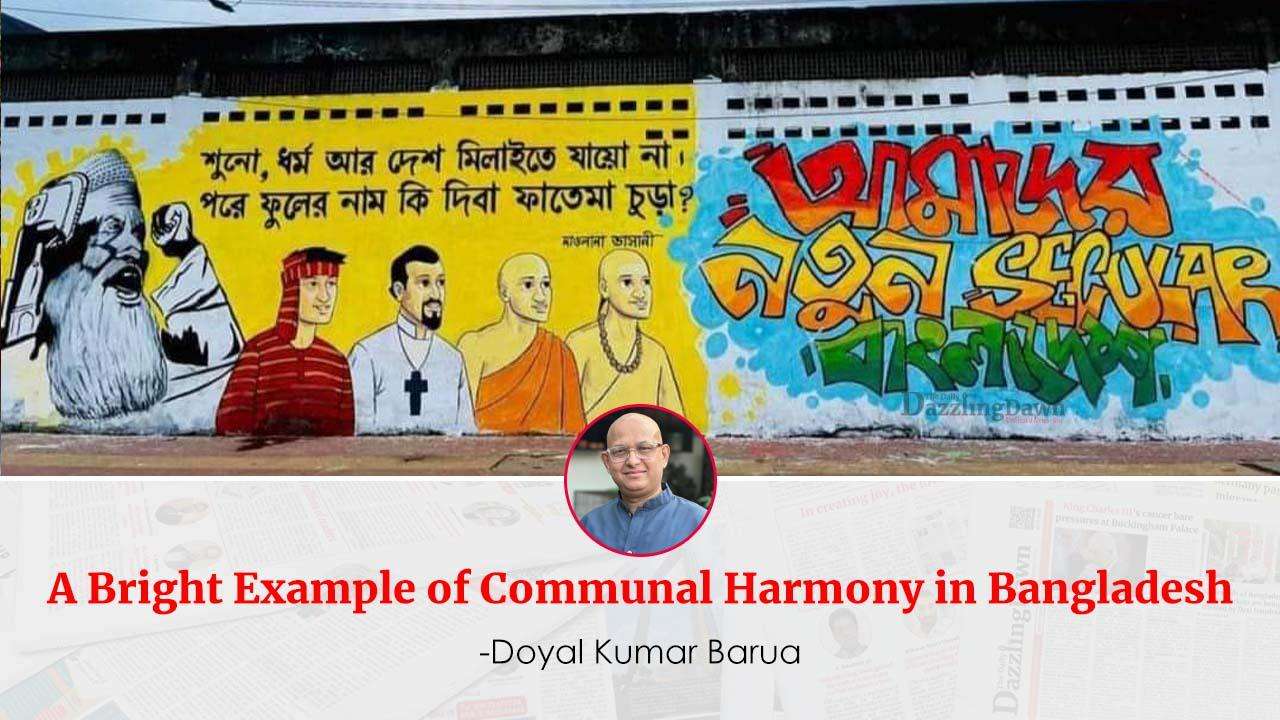Bangladesh stands as a shining example of communal harmony. However, there are some who are conspiring and crafting master plans to disrupt this harmony. They have positioned themselves against the current government, going against the wishes of the people of Bangladesh. This year, despite the Durga Puja festivities taking place in over 32,000 Puja pavilions across Bangladesh in a festive atmosphere, some have engaged in spreading misinformation.
There were fears of a calculated sabotage attempt during this year’s Durga Puja celebrations to put the blame on the government and major political parties, exploiting the situation for their gain. Due to these concerns, members of law enforcement, political party activists, students, civilians, and even teachers and students from madrasas stayed up at night to guard the Hindu temples and Puja pavilions. In the past, after the revolution on August 5, the temples and properties of the Hindu community were similarly protected from potential sabotage by student-led patrols.
Despite this, the baseless and politically motivated concern expressed by another country over the security of Bangladesh’s minority Hindu community, and the associated planned misinformation campaign in the media, send a different message to the democracy-seeking people of Bangladesh. This neither benefits Bangladesh’s democratic development nor the bilateral relations between the two countries, nor does it serve the interests of the Hindu minority community.
Communal harmony in Bangladesh is being unnecessarily used as a political tool, turning it into a game of blame and strategy. This, in effect, pushes the peaceful Hindu community, who live with a sense of security and harmony, toward distrust and an unstable environment. The majority of people in the country are aware of this. Under the constitution and the law, everyone in this country has equal rights and dignity when it comes to safety. We must take an active and strong stand against misinformation and in favor of peace and harmony.
Meanwhile, the Bangladesh Sanatan Jagaran Manch, an organization representing the Hindu community, has presented an eight-point demand. Their demands include the formation of a speedy trial tribunal to ensure appropriate punishment for those involved in the persecution of minorities, compensation and rehabilitation for the victims, and the urgent enactment of a Minority Protection Act. Other demands include the establishment of a Ministry for Minority Affairs, the elevation of the Hindu Religious Welfare Trust to a Hindu Foundation, the upgrading of the Buddhist and Christian welfare trusts to foundations, the enactment of laws for the recovery and preservation of Debottor (temple) properties, implementation of the Vested Property Return Act, provision of places of worship and prayer rooms in educational institutions and hostels, modernization of Sanskrit and Pali education boards, and a five-day holiday for Durga Puja.
I personally support these demands. However, they must recognize that it may not be feasible for the current government to meet all of their demands. Raising demands requires the right timing. The interim government faces numerous challenges at present. They are working to address issues like establishing law and order, restoring discipline in the state structure, boosting commerce, restructuring the education sector, and curbing the disorder in the healthcare sector. As part of state reforms, six commissions have been established, including those for the Election Commission, police administration, judiciary, anti-corruption, public administration, and constitutional reform. This government, formed under unique circumstances following a student movement, has high expectations from the public. The government has to fulfill the goals for which the student and working classes made sacrifices during the revolution. Hindus, Muslims, Christians, Buddhists, and indigenous communities in the country are united in supporting this government. All these communities made sacrifices in the anti-autocracy movement. We stand together against discrimination, deprivation, and oppression. However, establishing a Ministry for Minority Affairs is essential to safeguard the rights of Hindu, Buddhist, and Christian communities in Bangladesh. The ministry’s role would be to work for their welfare.
Just as we united in our movement, we must remain united to reform and repair the state. This government is still young. We must give the interim government time until the reforms are complete. A particular group is attempting to undermine the victory of the student and working class. We must avoid falling into their traps. It is our collective responsibility to ensure that the centuries-old communal harmony remains intact.
--
The author is a columnist and President of the Chittagong University Alumni Association, Bashundhara. He is also a former trustee of the Buddhist Religious Welfare Trust.



.jpg)




.svg)
